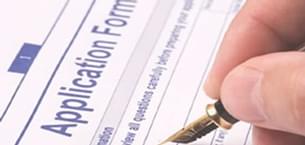MBA in Canada Admissions 2023: MBA in Canada admissions have begun for the year 2023. There are three primary intakes for MBA in Canada admissions for international students. Intake starts during the fall, winter, and summer seasons. For Canada, fall intake begins in September and is the primary intake. For international students, Round 1 for MBA admission in top Canada Business schools is in September.
Upcoming Round deadlines for MBA in Canada Admissions:
- Simon Fraser University: October 15, 2022
- York University: October 26, 2022
- Western University: November 7, 2022
- McGill University: November 15, 2022
- University of Toronto: January 3, 2023
For more information, Click here
MBA in Canada receives applications in humongous amounts from aspiring international business students. The popularity of Canada as an international study destination is profound. What makes Canada rank among the top 10 destinations to study MBA abroad is its high-quality education which tags along with immigrant-friendly policies.
Additionally, universities and business schools in Canada offer a wide array of MBA programs such as MBA in International Business, MBA in Finance, MBA in Community Economic Development, Executive MBA in Canada, MBA in Global Management, etc. Admission to MBA Colleges in Canada requires its international applicants to have a competitive GPA of around 80% or more and GMAT scores of 550 to 650 (depending on the choice of university).
With top-ranked B-schools like Rotman, Sauder, Smith, etc, Canada boasts to be one of the most popular MBA education centers. Top business schools in Canada offer world-class education at a cheaper price and slightly less stringent admission policies than in the US. Where MBA in Canada costs around 80,000 USD a year, the US can burn a hole of around 110,000 USD a year.
MBA in Canada Application Deadlines
The admission cycle for most MBA programs in Canada begins at least six months before the session commencement date. The upcoming application deadline for some of the top MBA programs in Canada are as follows:
| University | Round | Application Deadline | Decision |
|---|---|---|---|
| University of Toronto (Rotman) | Early Round | September 2, 2022 (closed) | October 14, 2022 |
| Round 1 | October 3, 2022(closed) | December 16, 2022 | |
| Round 2 | January 13, 2023 | March 17, 2023 | |
| Round 3 | March 6, 2023 | May 5, 2023 | |
| Round 4 | April 28, 2023 | May 31, 2023 | |
| Mcgill University (Desautels) | First application deadline | November 1, 2022 | Admission decisions are usually rendered within four weeks following receipt of complete applications with all supporting documents |
| Second application deadline | January 15, 2023 | ||
| Final deadline | March 15, 2023 | ||
| Queen’s University (Smith) | Final deadline | September 1, 2022 (Closed) | rolling admission |
| York University (Schulich) | January 2023 Round 1 | June 1, 2022(closed) | Applications will be reviewed following each round deadline. The usual turnaround time is 6-8 weeks* from the deadline |
| January 2023 Round 2 | July 13, 2022(closed) | ||
| January 2023 Final Round | September 7, 2022(closed) | ||
| September 2023 Round 1 | October 12, 2022(closed) | ||
| September 2023 Round 2 | January 18, 2023 | ||
| September 2023 Final Round | April 12, 2023 | ||
| The University of British Columbia (Sauder) | Round 1 | October 11, 2022(closed) | TBU |
| Round 2 | January 10, 2023 | TBU | |
| Round 3 | March 14, 2023 | TBU | |
| Western University (Ivey) | Round 5 | November 7, 2022 | rolling basis |
| Round 6 | January 9, 2023 | ||
| University of Alberta | September 2023 Fall Term | March 1, 2023 | rolling basis |
| Concordia University (John Molson) | September entry | March 1 | rolling basis |
| January entry | June 1 | ||
| HEC Montreal | Round 1 | November 15 | January 15 |
| Round 2 | January 15 | March 15 | |
| Round 3 | March 15 | May 15 | |
| Dalhousie University (Rowe) | Round 1 | Nov. 1 | TBU |
| Round 2 | December 1 | TBU | |
| McMaster University (Degroote) | Round 1 | October 12, 2022 (Closed) | Admissions decisions will be made approximately 6 weeks after each application deadline. |
| Round 2 | December 1, 2022 | ||
| Round 3 | February 28, 2023 | ||
| Saint Mary’s University (Sobey) | September | 1 April | 2-3 weeks after application |
| University of Manitoba (Asper) | Fall | March 1 | rolling basis |
| Winter | July 1 | ||
| Simon Fraser University (Beedie) | Round 1 | November 24, 2022 | within 2 weeks of application completion. |
| Round 2 | January 29, 2023 | ||
| Round 3 | March 23, 2023 | ||
| Round 4 | May 11, 2023 | ||
| Wilfrid Laurier | September | Jan. 15 | TBU |
MBA Admission in Canada Deadlines Round 2
The second Round deadlines for MBA in Canada admissions are given below:
| Name of the College | Application Deadline Round 2 |
|---|---|
| Rotman School of Management | January 13, 2023 |
| Desautels Faculty of Management | January 15, 2023 |
| Schulich School Business | July 13, 2022 (closed) |
| Ted Rogers School of Management (Ryerson University) | December 1, 2022 |
| Beedie Business School | January 29, 2023 |
MBA in Canada Round 3 & 4
The third and fourth rounds for MBA admissions in Canada will be conducted by the following dates -
| Name of the College | Admission deadline Round 3 | Admission Deadline Round 4 |
|---|---|---|
| Rotman School of Management | March 6, 2023 | April 28, 2023 |
| Ivey Business School | July 11, 2022 (closed) | September 19, 2022 (closed) |
| Schulich School Business | September 7, 2022 (closed) | October 26, 2022 |
| Beedie Business School | March 23, 2023 | May 11, 2023 |
Note:
- Ivey Business School also conducts a 5th and 6th round of admissions, the deadlines for which are on November 7, 2022, and January 9, 2023
- International Students are encouraged to apply by round 2 for MBA admissions in Canada.
MBA Admissions in Canada Timeline
Ideally, aspirants should begin preparing for admission to MBA in Canada at least two years before the actual joining year. This will give them enough time to research Business Schools, spruce up their resume, and work on GMAT and other tests required for MBA admissions in Canada. However, even if that’s not possible, prospective applicants should at least start their preparations a year before. A brief sketch of the MBA Admissions Timeline has been provided in the table below:
| Year 2 before Applying | Research and shortlist Business Schools in Canada |
|---|---|
| September to December | Note down Admission requirements and consider your shortfalls |
| January | Register for GMAT |
| January to April | Prepare for GMAT/GRE and also IELTS or TOEFL(If required) |
| April (5 months before Round 1 Application) | Appear for the GMAT examination and IELTS or TOEFL |
| April to May | Retake GMAT/IELTS/TOEFL of required |
| May to July | Begin drafting Statement of Purpose/Personal Essays/Cover Letter/Resumes Also, look for references to write LOR |
| August | Revise all documents and make sure that all information is correct |
| September - October | Apply for Round 1/Ensure that recommendations were sent on time |
| October - November | If selected, prepare for interviews |
| November - December | Give an Interview and receive an acceptance letter |
| December to January | Prepare and apply for round 2 admissions |
| February | If selected, prepare for interviews |
| March | If offer letters are received from multiple Business Schools, decide where to study and notify the University |
| March - April | Pay the deposit fee, Receive Confirmation of Enrolment and apply for a Canadian Student Visa. Also, check for scholarships |
| May | Schedule a Visa Interview |
| June to August | If you receive your Visa, make preparations to leave for Canada |
MBA in Canada Admission Process
The admission process for MBA in Canada is different for each university. However, before finally processing the application, most business schools in Canada will invite students for an interview round. If an applicant has been invited for an interview it means that the University or Business School in question is considering them for admission. Thus, the interview round is the last opportunity for applicants to make a good impression on the members of the Admission Committee.
The common questions that are asked during the interview round are as follows -
- Detailed questions on Academic History
- Work Experience
- Career aspirations or goals
- The decision to further their education
- How the MBA program will help them to achieve their career goals
- The potential contribution the candidate can make to the program or field he or she is planning to enter
Find out how to write a great CV, here!
Documents Required For MBA Admissions Canada
- All academic records and transcripts
- Work experience proof (if any)
- LOR (at least 2)
- Scorecard of language proficiency exams to study in Canada
- Bank statement/Financial proof
- SOP for MBA
- Essays (if asked)
- Updated CV/Resume
- Photograph.
Candidates should note that admission requirements may vary depending on the Business school one is applying to. Moreover, the University in question may also ask for additional documents or information if they deem it necessary.
Also check: LOR format and samples
MBA Admissions in Canada: KIRA Interviews
Video interviews or Video essays conducted through KIRA, an online video admissions platform are increasingly becoming an essential part of admission requirements for MBA programs in top universities in Canada. In this round, prospective candidates will be shown pre-recorded interview questions from the admissions team in a video format and then they will have to record their answers.
KIRA interview platform has different sets of randomized behavioral questions and candidates will be given 30 - 45 seconds to prepare and around 90 seconds to record their answers. Applicants will also have only one chance to record their answers. The KIRA interviews have 3 to 4 video-recorded questions and one written response.
Some of the questions asked include -
- If you have a gap year after your MBA, what would you do?
- If you could choose a color to represent yourself, what would you choose?
- Why do you want an MBA?
- Tell us a time about your proudest achievement and what was the impact.
- Tell us a time when you had to do a group presentation, what did you do, what was the outcome, what did you learn, and how would you do it differently next time
MBA in Canada Admission Decision
Universities in Canada focus on components such as work experience, extracurricular interests, personal essays, and letters of recommendation as well as the usual academic history, GMAT scores, English proficiency scores, and Undergraduate grades while making admission decisions for MBA. Leadership and management qualities are also considered while selecting a candidate for admission. Qualified applicants will also be required to appear for a final round of interviews.
Mistakes to avoid while applying for MBA in Canada
Crafting the application for admission to an MBA program is a tricky process. As a result, while applying, candidates tend to make mistakes that may create a negative impression on the admissions committee. Some of these mistakes have been listed below -
- Writing about things that applicants think that the admissions committee wants to hear rather than writing about their interests and goals
- Candidates should avoid exaggerating or lying about their accomplishments in their applications
- Not choosing proper references for writing LOR
- Applicants should avoid a mechanical or artificial tone while writing their essays, however, it should not be too informal or personal either.
- Resume, Cover letter, and Essay should not be generic. They should also not contain repetition of information, accomplishments etc.
Students can also refer to Sample SOP for MBA in Canada
Last but not least candidates should try to be their authentic self. Business Schools in Canada want to know more about who the applicant is as a person, therefore he or she should include their failures as well as the successes while writing their essays.



















1650959612.png?tr=w-305,h-145,c-force?h=175&w=350&mode=stretch)




Comments